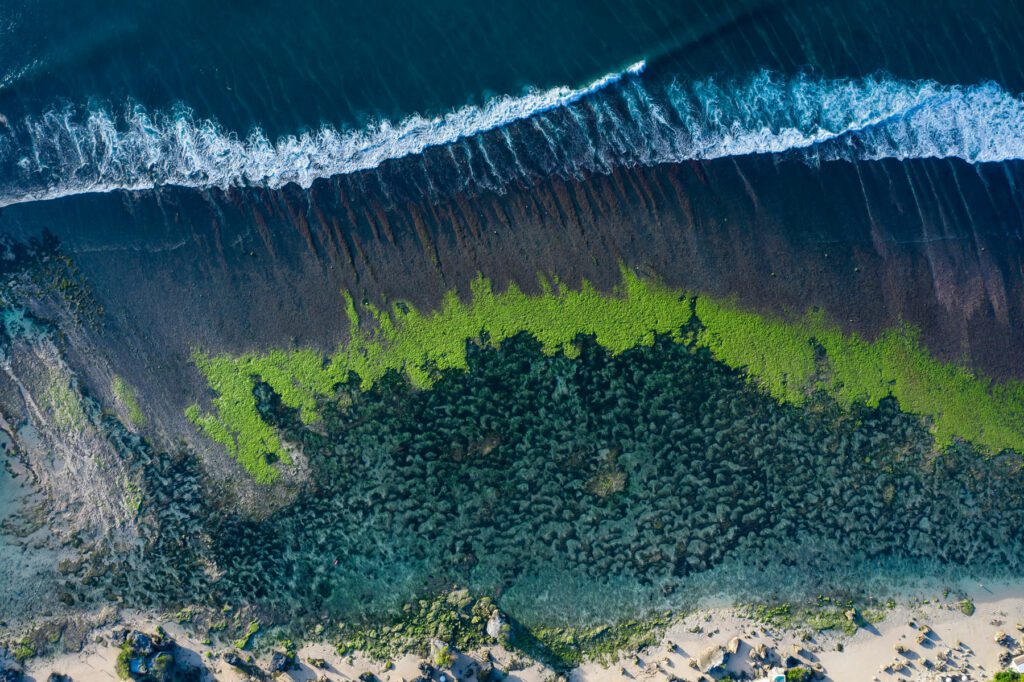In Great Britain, the potentially harmful effects of activities in the marine environment are controlled by a complex system of marine management, primarily governed by the Marine and Coastal Access Act 2009 (MCAA). This article provides a brief introduction to MCAA, and considers how the current regime has operated to protect the marine environment.
MCAA introduced a single framework for marine management and licensing. At that time, the policy emphasised the need to sustainably manage, enhance and use the natural environment for the benefit of current and future generations[1]. This was effected in MCAA by imposing an objective on the regulator to contribute to the achievement of sustainable development (General Objective)[2].
How do we currently protect the marine environment?
The regulators of the GB marine environment (Regulators) further the General Objective primarily through marine licensing and conservation zoning, and the management of marine fisheries.
Marine Licensing
Unless an exemption applies, anyone undertaking an activity listed in MCAA must have a licence from the licensing authority[3]. The list of licensable activities captures most activities in the marine environment, including any that involve removing or depositing objects; constructing, altering or improving works (in or over the sea, or on or under the seabed); scuttling and dredging, among others. When determining an application for a marine licence, the licensing authority must have regard to the need:
- to protect the environment
- to protect human health
- to prevent interference with legitimate uses of the sea (e.g. navigation, fishing).
The authority may also consider any other matters that it thinks relevant, provided always that it functions in accordance with the General Objective.
Marine Conservation Zones (MCZs)
MCAA allows the Regulators to designate zones to conserve or protect species of marine flora and fauna, marine habitats, and other significant features of the seabed.
Where a public authority’s functions may affect an MCZ, that authority must act in the manner that best furthers or (if this is impossible) least hinders the MCZ’s conservation objectives.
To help further these objectives, and to protect MCZs generally, the Marine Management Organisation (MMO) may make byelaws to control activities not currently regulated (licensed) in the inshore region[4].
This supports a key MCAA objective of building a network of marine protected areas (MPA) that contributes to the conservation or improvement of the marine environment[5].
Marine Management Organisation (MMO)
MCAA established the MMO, the primary Regulator of marine activities in the seas around England and Wales. The MMO exercises many functions on behalf of the UK Government. In so doing, it must reach a balance between environmental, social and economic considerations.
Management of Fisheries
The MMO may, for example, make byelaws relating to the offshore exploitation of sea fisheries resources (animals or plants) in England and Wales for the purpose of conserving marine flora and fauna or marine habitats. The Regulators have greater powers in this respect in relation to certain MPAs.
MCCA also established inshore fisheries and conservation districts/authorities (IFCAs) to manage the exploitation of sea fisheries with a direction to ‘seek’ to ensure that this is carried out in a sustainable way.
Historically, GB’s fishing fleets and stocks were managed under the EU Common Fisheries Policy which aimed to ensure the long-term viability of fish stocks and promote sustainable fishing practices. The Fisheries Act 2020 now provides the framework for GB fisheries management.
Has the existing regime been effective?
Marine Licensing Though the Regulators may include any relevant matters in their consideration of marine licence applications, the prescribed decision-making criteria (see above) is protective and preventative.
The Regulators are encouraged by the General Objective to promote a positive change in the marine environment, but the language of marine licensing instead promotes decisions that maintain the status quo. The focus of policy remains on marine recovery and habitat enhancement, and there is some question on how that can be achieved under the current licensing regime.
Marine Conservation Zones
Some of the criticisms of how MCZs operate include:
a) Protecting features of conservation interest will not restore biodiversity
MCZs are intended to maintain or restore specific features (habitats or species) to ‘favourable’ condition, within defined areas. In this, MCZs are broadly successful; but there is evidence that feature-based conservation is not supporting the recovery of marine biodiversity[6].
A long-term study of conservation measures at Lyme Bay found that adopting broad-scale habitat measures across the whole site resulted in a significant increase in biodiversity; exceeding the objectives for the individual features of conservation interest.
The ‘whole-site’ approach is notably more aligned with EU Directives (from which the UK’s MPA policy derives) which recommend measures that improve an area’s “ecological integrity” – the coherence of its structure, habitats and species, as a whole.
b) MMO byelaws fail to promote positive change
As with the narrow focus of MCZ conservation objectives, the limited scope of the MMO’s byelaws regime undermines the wider goals of sustainable development. The MMO may make byelaws to further the conservation objectives of MCZs or to manage the exploitation of sea fisheries resources. In either case, the purpose of any byelaw made under this power is limited to the conservation or protection of specific marine features.
Given that MCAA’s model byelaws exclusively restrict or prohibit potentially harmful activities, it is unsurprising that there were only 10 MMO byelaws in force last year; all related to restricting the use of bottom-towed fishing gear[7]. There is a question mark over how the regime can promote activities beneficial to the marine environment, and ensure that it is not instead inhibiting them.
Management of Fisheries
A major criticism of the regime for protecting the GB marine environment is the failure to recognise that marine conservation and fisheries management are interdependent.
The ability of fish stocks to replenish themselves is dependent on marine habitats providing nurseries for juvenile fish. However, certain fishing activities are linked to the destruction of those very habitats. A report produced by Oceana in 2023, “Taking Stock, The state of UK Fish populations 2023”, stated that “…destructive bottom trawling is allowed in 90% of UK offshore marine ‘protected’ areas […] making a mockery of the concept of ocean conservation”[8].
Further, the Oceana report claims that 5 out of 10 of the UK’s most important fish stocks are being overfished or are in a critical state. If that is the case, then the levels of fishing activity in the UK are not supported by the existing marine habitats despite a long-term policy to promote sustainable fisheries.
A thriving fishing industry is considered essential in providing nutritious, local produce and must be supported with thriving marine habitats.
How can MCAA be used most effectively to improve marine environments?
MCAA provides a comprehensive framework for the protection of our marine habitats, as well as providing the authority and the tools for the Regulators to give effect to the General Objective. To date, however, it has been deployed restrictively, protecting specific features without contributing to the restoration or enhancement of marine habitats. Meeting the wider aims set out under MCCA, i.e. sustainable development, requires more than maintaining the status quo.
Since 2018, the UK Government has consulted on how to incorporate a requirement for “Marine Net Gain” (MNG). MNG refers to the principle that new marine developments[9] should leave the environment in a measurably better state than before development. For MNG to deliver on restoring marine habitats and increasing biodiversity, a holistic management approach to all marine activity must be adopted, harmonising the competing demands on our waters.
[1] Defra, “A Sea Change: A Marine Bill White Paper” (Defra, 2007) p 2.
[2] Strictly, the General Objective applies to the regulator in England. However, the equivalent organisation in Wales has a similar objective. For simplicity, we refer to both objectives as “the General Objective” here.
[3] The Marine Management Organisation, in England; or Natural Resources Wales (NRW), in Wales.
[4] The Welsh Ministers have an equivalent power to make “conservation orders” in Wales.
[5] This is to fulfil the UK’s requirement to designate ecologically coherent and representative networks of Marine Protected Areas under the Marine Strategy Framework Directive (2008).
[6] Siân E. Rees, et al. “Emerging themes to support ambitious UK marine biodiversity conservation” Marine Policy, Vol 117, 2020.
[7] MMO Guidance: Understand MMO marine conservation byelaws (Jan 2023).
[8] Oceana, “Taking Stock: The State of UK Fish Populations 2023” (Sept 2023), p 3.
[9] In this case, development activities in English waters below the mean low water mark.






